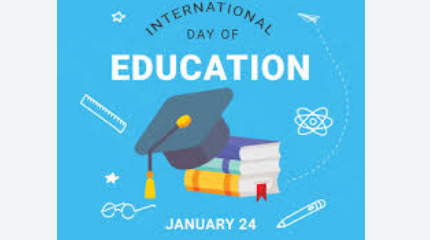Islamabad (Web Desk/Agencies): International Day of Education is being observed today (Friday) across the globe including Pakistan.
The theme for this year is “AI and Education: Preserving Human Agency in a World of Automation.”
This year International Day of Education encourages reflections on the power of education to equip individuals and communities to navigate, understand and influence technological advancement.
On December 3, 2018, the United Nations General Assembly (UNGA) proclaimed January 24 as the International Day of Education to raise awareness of education's accessibility and significance for everyone.
Education is not just a privilege but a fundamental human right, as outlined in the Universal Declaration of Human Rights, which calls for free and compulsory education at the primary level. The Convention on the Rights of the Child, adopted in 1989, further stresses the need for nations to provide access to higher education.
In 2015, when the UN set the 2030 Agenda for Sustainable Development, it identified education as a cornerstone for achieving progress across all areas. Goal 4 of the Sustainable Development Goals (SDGs) focuses on ensuring inclusive and equitable quality education for all, as well as promoting lifelong learning opportunities.
Yet, despite global recognition of education’s importance, significant barriers remain.
According to the UN data, around 244 million children and adolescents worldwide are still excluded from the classroom, while 617 million young people cannot read or perform basic arithmetic, and fewer than 40% of girls in parts of sub-Saharan Africa complete secondary school.
On top of these challenges, an estimated four million refugee children and youth are denied access to education.
These figures highlight the urgent need for greater commitment and innovative solutions to ensure that education reaches every child.
Meanwhile, the United Nations Educational, Scientific and Cultural Organization (UNESCO) has designated International Education Day 2025 to explore the role of artificial intelligence (AI) in education, highlighting its capacity to both improve learning experiences and address the ethical concerns it raises.


